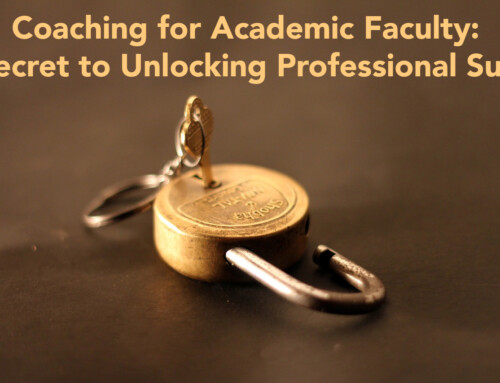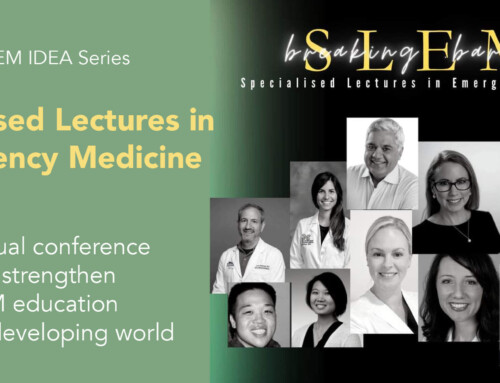 Keeping up with the literature these days is quite a daunting task. Medical information has increased exponentially over the past few decades and continues to do so. We spend a great deal of time and energy memorizing information which soon may become obsolete (see excerpt from the book The Half-Life of Facts by Arbesman).
Keeping up with the literature these days is quite a daunting task. Medical information has increased exponentially over the past few decades and continues to do so. We spend a great deal of time and energy memorizing information which soon may become obsolete (see excerpt from the book The Half-Life of Facts by Arbesman).
Expecting physicians to keep a busy practice AND keep up with all the most current literature is impractical. By the time textbooks are published, the information is already a few years old and this puts us at risk of not practicing the most up to date and best evidence practice. We also know that with the increasing volume of information there has been new development on statistics on how to evaluate this vast amount of data. Most physicians are not properly equipped with the necessary statistical skills or time to analyze this vast amount of information.
So how DOES a practicing physician keep up with the most current, evidence-based medicine (EBM)?
The classic way
We are taught in medical school the classic 5-step approach to the medical literature:
- Develop a PICO format question
- Find research that answers that specific question
- Evaluate the research for validity, impact, and applicability
- Apply the information to clinical decision making
- Periodically evaluate one’s effectiveness at performing the previous four steps

In this 2005 Academic Medicine article, 1 the authors propose that physicians should learn how to manage information instead of becoming experts in EBM. The authors point out that having physicians read the literature using the traditional EBM approach is time consuming, not patient oriented, and often too impractical to be applied at the point of care. Furthermore, it is unrealistic to expect that all physicians expertly conduct critical appraisals of all the literature.
In contrast, information management “focuses on using currently available information tools to remain up to date with new valid information that is relevant to the care of patients and is accessible while taking care of patients.”
The argument
Information management is based on the key formula to finding useful information regarding patient care:

Variables
1. Relevance = direct applicability of information to patient care and focuses on 3 qualifications:
- Does the information focus on outcomes patients care about?
- Is the intervention or practice feasible, and is the problem addressed common in one’s clinical practice?
- Would the information, if true, require a change in one’s clinical practice?
Patient-Oriented Evidence that Matters (POEM), a term which characterizes research which meets this criteria, was developed by the authors.
2. Validity = technical rigor that is the focus of EBM
So the ideal resource is one that has direct relevance and high validity in answering your patient care-related question, which takes the least amount of effort to obtain.
Proposed tools and skills to help with information management
Information tools are divided into:
1. “Foraging tools” to allow clinicians to “keep up” with literature
- Tools that alert clinicians to new, relevant, and valid information.
- Includes levels of evidence and specific recommendations.
- Examples: Journal watches, daily POEM alerts, daily emailed clinical pearls
2. “Hunting tools” to find the answer
- Point-of-care tools that present information, pre-filtered for relevance, pre-appraised for validity using explicit criteria, marked with levels of evidence, and placed in clinical context.
- Allow clinicians to find “just in time” answer, when needed.
- Includes explicit method for searching the literature to find relevant and valid information.
- Examples: DynaMed, UpToDate
What skills should be taught in Information Management?
- Select tools for “keeping up” (foraging tools).
- Select the appropriate hunting tool(s).
- Practice patient-centered (not just evidence-centered) decision making.
- This includes consideration of the patient as a person along with seeing the patient in the standard biomedical model of a person with a disease. The clinical decision is based on by balancing the evidence with the desires of the patient.
The current use of technology plays a major role in today’s practice of up to date medicine. Pre-filtered, EBM appraised, valid information is at our fingertips and ready for use. Because not all tools are created equal, we need to ensure that the tools we use are valid and relevant to our practice.
A nice summative quote from the article about why Information Management will be a key skill for today’s and tomorrow’s physicians:
To keep pressing the standard of EBM approach is like asking everyone who wishes to make a cake to buy the wheat to grind their own flour, refine their own sugar, and extract their own flavorings before ever starting the cake. Cakes aren’t made this way.
Questions for you:
- What do you think about the author’s proposal that all physicians become experts in information management rather than EBM?
- Which foraging and hunting tools do you use? Do they significantly help your practice?
Additional reading
- Hurwitz SR, et al. Should We Be Teaching Information Management Instead of Evidence-based Medicine? Clin Orthop Relat Res. 2010 October; 468(10): 2633–2639. PMC3049623
- University of Georgia. (Uploaded May 28, 2010) Teaching Evidence Based Medicine: Should We Be Teaching Information Management Instead? Presenter: David Slawson, MD Retrieved April 19, 2013.
- Free online course on evidence based medicine by Dr. Mark H. Ebell MD from the University of Georgia




